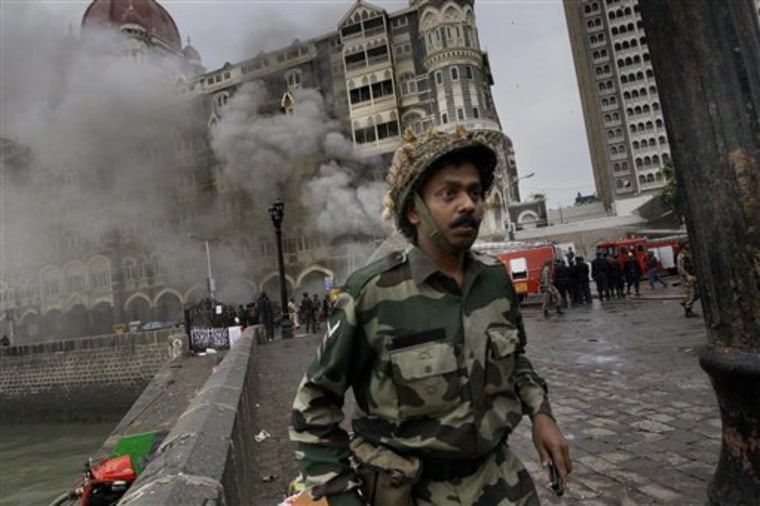This seaside city of 18 million has bounced back from wrenching tragedy before, but after the most brazen terrorist attack in India's history, the people of Mumbai are worried.
In crowded trains, corner stores, office buildings and neighborhood parks, residents ask each other the same questions. "Is anyone safe?" and "Could it happen again?"
The 60-hour siege ended Saturday, claiming more than 170 lives in attacks at 10 landmarks across Mumbai. The three-day ordeal spread fear and grief across a city that attracts newcomers by the hundreds every day.
"There is a limit a city can take," said Ayesha Dar, a 33-year-old homemaker. "This is a very, very different kind of fear. It will be some time before things get back to normal."
Dar glanced at a message on her mobile phone that said her children's school would reopen Monday.
Police shut down most of the city's "soft targets," including schools and movie theaters, after the siege began late Wednesday night.
The movie theaters in this film-crazy city are usually packed and attendance levels creeping up would indicate that life is returning to normal. But cinema workers say that could be a while.
"I can't say when we will open again," said Karan Amin, a staffer at downtown Mumbai's Regal cinema. "Anyway, who will come here when there is so much fear?"
Restaurant owners also feared the attacks against some of the city's most popular and elegant establishments would keep people away.
"People are not going to come to restaurants or bars when they are afraid," said Pranav Desai, owner of two upscale bars. "These are well-trained militants, not boys told to plant bombs and get out. This time around it's not so simple."
Recovering from tragedy
This is a city that is all too familiar with recovering from massive tragedy. In 2006, seven blasts ripped into train cars packed during evening rush hour, killing 187 people.
In 2003, taxis packed with explosives blew up outside the iconic Gateway of India monument — just steps away from the Taj Mahal hotel at the center of the latest terrorist attacks — and at a crowded market, killing 52 people. Life returned to normal within hours.
In 1993, in the nation's worst terrorist strikes to date, a series of 13 bombings across the city killed 257 people. The Bombay Stock Exchange, which was hit with a car bomb, never shut down.
This time, however, Mumbai's residents are not sure it will be so easy to bounce back.
"People are worried, but the key difference is anger," said Rajesh Jain, chief executive officer at a brokerage firm, Pranav Securities. "People are worked up about the ineffectiveness of the administration. Does the government have the will, the ability to tackle the dangers we face?"
Still, he said almost half of his 40 employees turned up for work after this week's attacks began, even though his office is just 500 yards (meters) from the Taj Mahal hotel.
"Suddenly no one feels safe or secure," said Joe Sequeira, the manager of a popular restaurant near the Oberoi hotel, another site targeted in the attacks. "It will take time. People are scared but they will realize it's no use being scared and sitting at home."
Time of grieving
Now the battles have ended, the mourning will begin. With more than 170 dead, the grief will be substantial.
Police held funerals for fallen colleagues on Saturday, with plaintive trumpets sounding over rows of dozens of officers in dress uniforms.
In the southern city of Bangalore on Saturday, the National Security Guard held a funeral for Gen. Sandeep Unnikrishnan who was killed in the siege.
"He gave up his own life to save the others," J.K. Dutt, director general of India's elite NSG unit, said from Mumbai. "When he got separated from other commandoes, he asked other commandoes not to come up the stairs since they would get caught in the cross fire."
On Saturday, hours after the violence ended, many in Mumbai were struggling to take stock of what happened and how their city had changed.
People flocked to the Taj Mahal hotel to survey the damage, walking the grounds with necks craned and cameras in hand. They took photos of nearby streets filled with bullet-riddled cars, their windows blown out, the tires flat, and they gawked by the hundreds at the blackened landmark.
"It may take a little longer to get back to normal," said Sequeira, the restaurant manager. "But we have no choice. We must."
